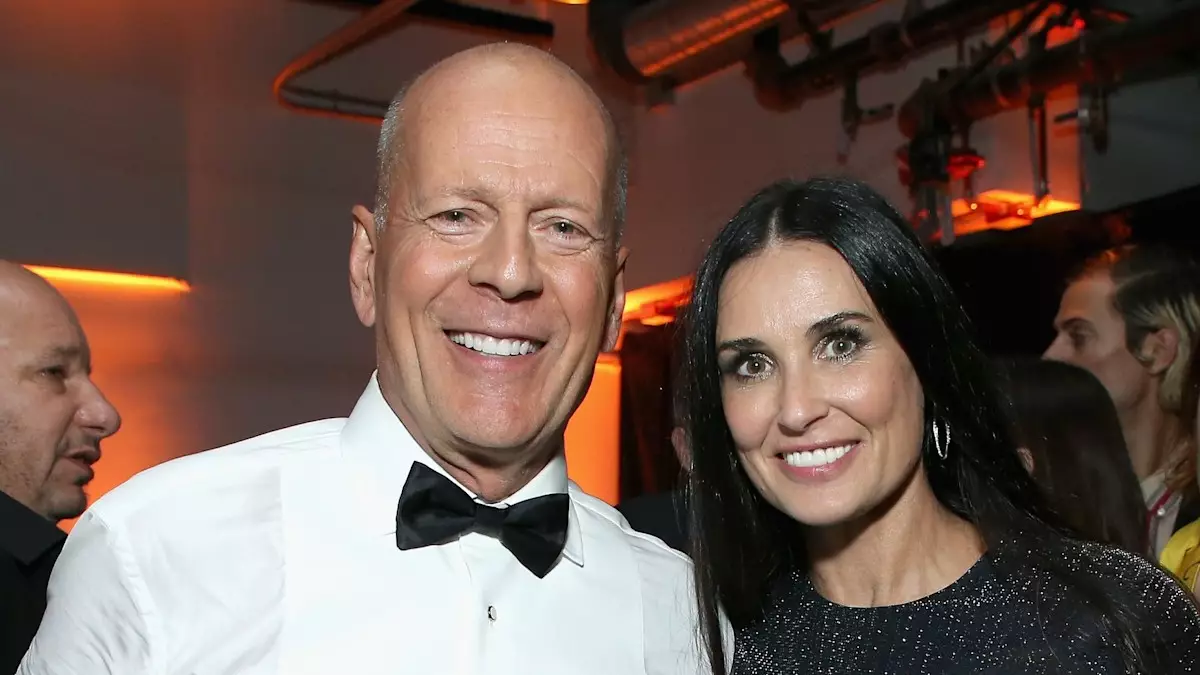Dementia is a term that often evokes feelings of fear and uncertainty, particularly when it affects loved ones. Among the various types, frontotemporal dementia (FTD) stands out due to its unique impact on personality, behavior, and language. The condition, characterized by degeneration in the frontal and temporal lobes of the brain, alters how individuals express themselves and interact with those around them. Recently, the personal ramifications of FTD have been brought into sharper focus through the experiences of Hollywood actor Bruce Willis and his family, particularly his ex-wife Demi Moore. Their story sheds light on how familial bonds can both adapt and thrive in the face of such challenges.
During a recent appearance on *The Drew Barrymore Show*, Demi Moore gave an emotional update on Bruce Willis’ condition following his diagnosis of FTD earlier this year. Moore expressed a sense of stability regarding Bruce’s health, stating, “Given the givens, he’s in a stable place.” The remark underscores a theme prevalent in their family: embracing the present moment rather than dwelling on past struggles or future uncertainties. Such an outlook can foster resilience, focusing on creating meaningful connections despite life’s unpredictabilities.
The conversation naturally touched on memories from the past, highlighting Bruce’s cameo in the 2003 film *Charlie’s Angels: Full Throttle*, a project that Moore and Barrymore both participated in. It revealed the enduring nature of their relationships, reminding viewers of the deep roots that celebrity friendships can have outside the public eye. Moore’s acknowledgment of their shared history serves as a testament to the importance of cherishing experiences that shape personal identities and familial ties.
Central to Moore’s message is the importance of family. She emphasized ideals she imparts to her daughters — Rumer, Scout, and Tallulah. Rather than holding onto memories of who Bruce once was, Demi encourages her daughters to embrace him “where he’s at.” This approach is integral in a situation where roles and dynamics can shift dramatically due to health conditions. It highlights an essential principle of caregiving: fostering acceptance and appreciation for individuals as they exist in their current states.
Demi has also committed to maintaining her close ties with Bruce, visiting him weekly when in Los Angeles. Such consistency reflects the significance of presence, reinforcing supportive relationships. Their ongoing connection shows that love does not diminish due to circumstances; instead, it can evolve, allowing for shared joy even during heartbreak.
The impact of Bruce’s health condition is not only felt by him and Demi but also profoundly affects their daughters. In previous interviews, Tallulah and Rumer have openly shared their thoughts and feelings about their father’s health challenges. Tallulah’s statement emphasizes that their visits are filled with “so much love,” illustrating how familial bonds are fortified through shared compassion and understanding.
Similarly, Rumer conveyed a sense of gratitude for the love surrounding their family. She noted, “I think, through this experience, what’s been so incredible is my dad is so beloved.” Herein lies a crucial theme: the warmth that exists among family members during such trials can be a source of solace for all involved. Their willingness to share their narrative serves not only as a means of coping but is also an inspirational beacon for others navigating similar circumstances, underlining the idea that vulnerability can generate hope.
The challenges posed by frontotemporal dementia are daunting, yet the situation faced by Bruce Willis and his family illustrates the power of love in overcoming adversity. Demi Moore and her daughters’ experiences signify resilience, acceptance, and adaptability. Their unwavering dedication to one another serves as a reminder that, even when faced with heart-wrenching circumstances, hope, joy, and family connections can endure. This narrative not only resonates within the entertainment industry but also serves as an important reflection for anyone navigating the realities of dementia within their own families. In embracing the present and cultivating love amidst challenges, they demonstrate a poignant truth: we can find beauty and grace in even the most difficult situations.

